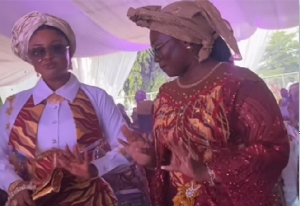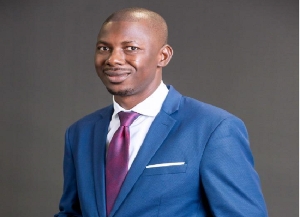Opinions of Friday, 29 July 2011
Columnist: Bolus, Mercy Adede
Is there any form of community development .....
responsibilities for each town in Ghana?
Many communities in the developed world have taken initiatives in consultation with their local councils to actually develop their areas. Our communities need critical development yet we have not got our head around to plan how these need to be shared. In many developed countries the local planning authorities have responsibilities at local level to address local issues and their activities are reported to Government through the local district to the central office.
Each District Chief Executive (DCE) is responsible for the following among others:
Collection of local taxes set by that community and refuse collection
Overseeing all the planning applications including naming of streets for that district
Holding regular meetings involving community leaders, traditional priests, church leaders, teachers, and some of the general public within that town
Taking actions on abandoned vehicles in the town
Building control and ensuring that sanitation values are upheld in the community
Determining the contributions of business to the community
Ensuring that all cemeteries are attended to and cleaned
Offering Grants to poor students for higher education
Ensuring district housing issues are tackled and funding of low cost
DCE ensure that each town has a public toilets with facilities for the disabled
Ghanaweb on 26/7/11 reported that the current Minister of Water resources, Works and Housing, Hon Bagbin gave new details on Ghana’s current housing deficit and warned that the nation will hit a more crippling crisis point if massive investment is not made in the sector to cut back the shortfall.
Statistics from the Housing ministry also indicated that the existing housing deficit is in excess of 1.57m units, with the deficit projected to be about 2.76m in 2020.
90% of the housing stock in urban Ghana is privately owned, with only 10% public. The total housing expenditure in urban Ghana ranges from a high of 19% in Accra to a low of about 4% compared to the internationally accepted standard of 35%.
The annual cost of meeting the housing deficit is projected at between $2 billion and $3.6 billion for the next 10 years.
Is it not about time that this report sends a signal to the Government that housing issues is a priority? Surely as a priority efforts could be made with both housing development companies and the government own housing department to come up with eco-friendly materials which are affordable as well as involve the DCE in every district in decisions on making housing issues. In some developed countries the sweat equity has been introduced because those caught in the poverty trap can’t own their own homes and they need leverage to be able to think that way.
It is interesting to note from the Minister that his ministry is on course to meet and strip the Millennium Development Goal target of providing potable water coverage for 78% of the population by 2015. The government of Ghana’s target is to reach 85% by 2015 and universal access by 2025. 62% of the population had access to potable water by the end of 2010.
If Hon Bagbin is working alone and not involving the chiefs, leaders, town planners, DCE in his decision making and just assuming that the provision of water will solve everything, will not address the situation. One would ask that what about the sewerage system, fire safety and other health issues? Is the environment department integrated into his department? What exactly are they saying about these slums in our cities? These living conditions are not acceptable for animals and in some countries and would prompt the RSPCA to act. There are hundreds of people if not thousands forced to live in squalor and yet nothing is being done to change their situation.
Previous governments have not been able to address the slums in the cities not even the awareness by the media to raise this situation to government have been addressed. It is ironic that the past government turned a blind eye to the slums and rather awarded themselves gold medals for a great job done? They spent our valuable resources on other projects of limited value to the population and did not touch on Housing, Water and Sewerage to address the drainage problem resulting in cholera outbreaks killing children and families.
I would like to suggest that the Government work closely with the DCEs to develop communities to work in partnership with local people so as to control the slums in our cities otherwise the situation will be dire to avoid a similar issue like Sodom and Gomorrah. Community developmental issues for each town must be made a priority on the Government Better Ghana agenda.
I challenge the Hon Minister Bagbin to spend just a day sleeping in the squalor with these groups of people and then he will realise the seriousness of their plight.












